Kate Bowler: There are some realities we can never get over. The grief of losing someone you thought you could never live without. The loss of some abilities maybe as you age or maybe illness or disease or tragedy took them from us. The lightness we used to live with before. Before we knew that life could just come undone. I’m Kate Bowler, and this is Everything Happens. Today, I’m speaking with someone who had a really profound experience of loss that is not get-over-able. Her name is Wilma Dirksen. And over 40 years ago, her 13 year old daughter Candice never came home from school. Candice was abducted and left to die not far from her home, which is the story of nightmares, parental nightmares. But it is one that Wilma lived through and kept living through. The horrors of learning Candice was missing, to the search for and discovery of her body seven weeks later to not knowing who did it for 20 years, to the decades of legal battles that are still unresolved. This isn’t a loss you get over. But it’s a reality Wilma has learned to live along side. And the way she’s chosen to do so is just remarkable. She’s chosen to make her life one about forgiveness. And on first blush, that might seem alarming. But as you’ll hear today, forgiveness is something Wilma is continuing to learn more about. Maybe that’s why Jesus said something about how we don’t just forgive once, but we must forgive seven times seventy times. Because maybe forgiveness is a young fruit that requires a lifetime to grow, a lifetime to learn just how to do it. Forgiving yourself, forgiving justice systems that never quite satisfy, forgiving cruelty that perpetuates. Forgiving and forgiving over and over again. And seeing who we might become on the other side of a loss we can never get over. I am honored to be in conversation with Wilma today. She has so much to teach us about how to live with things we can never change. Wilma, at last. Here you are. It’s so good to finally meet you.
Wilma Dirksen It’s good to be here. Thanks.
Kate: I knew about you growing up because I grew up in Winnipeg.
Wilma: Okay. Yes.
Kate: And then the first time I realized, yeah, I could go talk to you was, Malcolm Gladwell had said—we were talking about why bother being a person of faith at all—and he said, well, I actually have a very good reason. And her name is Wilma.
Wilma: I know. I met him, yes.
Kate: I really liked the idea that meeting a person, him meeting you, could be like an, you’re like an argument, you know? And I thought, my gosh, I can’t wait to meet you. So I wonder then, if we could start with, like, young mom, early family, Wilma. Who were you then, and what were your big hopes?
Wilma: Well, Cliff is an artist. We met as an artist and writer at Bible school, right? And so that was who I was. We were we were going to have this wonderful life of just, and not quite we fit the box, right? We were going to be creatives and we were going to have and then we had these three children, Candice, Odia, and Cyrus, and they were kind of surprises and I had to be practical so I went into journalism. And it was just we we, we loved being together. We had such fun as a family. And it was great.
Kate: I was very young when I heard that tragedy had interrupted and absolutely thrown your family into a tailspin. And and so much, I imagine you went from a life that seemed entirely perfectly predictable and average to one that was just, like completely torn open.
Wilma: Totally. Yes, it was. You know, it all started that with that one day. You know, it was just totally different. I got up in the morning. It was going to be a normal day. I had some deadlines that I had to reach. And then Candice called me from school and wanted a ride home. And I just said I had a deadline. And she you know, I often picked her up on Friday afternoons. And I said asked her if she’d walk home. And she was she was cheery. She was wonderful. So I thought I was in good, that we were all in good spaces and she could walk home and then we could start the evening. And then she didn’t come home from school. It was just, just something, just totally disrupted everything in our lives. And then we went and we started, I started to call her friends. I start to call. I panicked totally because I knew that Candace was the type of person that loved people. She just loved people. And her best friend was coming in the next day from Gimli, and so I knew there was nothing going to keep her away From home that day. So I just panicked and panicked. And that just sparked the hunt. That, the search for seven weeks. Yeah.
Kate: Your kindness toward a process of investigation, which is really brutal. Like. I mean, even just being investigated is so deeply unfair.
Wilma: Well we called the police that night and we expected them to take us seriously and look for Candice because we were in such a panic. And they just asked us about ourselves and they asked us what we were doing because he was the camp director and had been a pastor. And we were pulling out all the good stuff about ourselves. We tried to convince them that we were a good family, that they need to look for Candice. And they took everything the wrong way. They said, oh you’re religious? Maybe Candice is running away from religious parents and maybe she was a runaway and so they didn’t really accept anything. The only card that we had, what to pull from was that Candice was expecting her best friend the next day, and that Candice was a people person. And so we played that over and over again. So finally they put it on citywide alert. But that was just the first shock that there was some, there’s going to be some pushback. And that was really tough at that moment. And then that night was just horrible. And and it just and then we got the friends to come in. And they were wonderful in helping us and supporting us. And then and they, too, knew that Candice and Heidi, her best friend, were just a Jonathan and David kind of relationship. So they knew that when, that her disappearing on that day was a huge alert for everyone involved. Yeah.
Kate: So that like slow, terrible, surreal quality to it, that whole stretch of time.
Wilma: It was just, well, we didn’t, we were just so absorbed and in such a panic. Like, I don’t think I realized until 10:00 that night that the kids hadn’t eaten anything, you know. They were just, you know, then they were whimpering and I thought, my word. And just the disruption, and then the, they had the surreal. You know, where was Candice? Who could possibly have taken her? And I guess it was my worst worry because Candace was a 13 year old that is just a child, really, that had turned into a woman overnight, you know, and she was still a child innocent of how she presented herself. But yet I knew that she was very appealing. I saw the men look at her when she was in the restaurant, and she had that just that flush of innocence and charm and all. So I, I had that. I had that sick feeling almost immediately, almost immediately that somebody had taken her and that had been attracted to her, had been stalking her or something. And and then just the pain of that. And then the imagination of the horror of that, right? And all that came just that night. And I of course, I plead with God to, you know, take care of Candace. And all of that just bargained everything possible. Right. And then just stayed up and just sat at the window looking out. And the whole city goes to sleep, and it was no longer possible for me to do any work on it, to call anybody. And just the nightmare, the nightmare started.
Kate: Is one of the hardest things about those early days trying to figure out if there’s anything you can do? And then having to live with the fact that most of the time you there’s just nothing to do?
Wilma: I think that was a shock that there’s absolutely nothing to do. We could you know, we couldn’t call anybody. Like I’d called everybody possible. And then we did all the, you know, followed every lead possible. And then just to sit there and think that my daughter could be in pain, could be in hostage, could be being raped and I could absolutely do nothing. Just horrible.
Kate: I wish there was a bit like a different word for the pain you experience through the pain of your child, and that desire so much, to like reabsorb it into your own body.
Wilma: Totally. I would rather have been there for, I, just take me, you know, I’ll, I’ll go through it, just leave. And Candice was the type of child that she was very sensitive, so whenever she, even my parents would say my goodness, whenever she’d hurt herself, we’d all know about it. So to imagine her or try not to imagine her in pain was just overwhelming.I can’t I can’t describe the feelings of of just, I could feel the pain. In fact, I got cold, all of a sudden. And, you know, she was in the shack and she was actually dying of hypothermia and I could feel the cold. So it was around 4:00 at night then and I was just shivering. I was just cold, cold, cold. I couldn’t understand. Cliff had gone to bed because he was, I don’t think he could feel it like I did. And he had hope, and I didn’t. And so I went to bed.
Kate: And you didn’t?
Wilma: I didn’t. Like I kind of knew.
Kate: It was like a knowing.
Wilma: I kind of knew. Yeah, I kind of knew. And there is a connection. There is a connection. So I was shivering. So I went to bed and then all of a sudden I realized that the wind in the house had stopped. I didn’t know there was a wind. And I’m going to cry. And that’s when I realized there was a wind there. I felt that I felt, like you say there was a connection. And then I asked, Candice, are you okay? And she said, yes, Mama. I knew she was in heaven. I mean, I didn’t know for sure. We never know for sure. But. But there was just this, a part of me that felt that it was over. And I think that was God given for me because I don’t know if I could have lasted not knowing. So thinking of her in heaven was just beautiful. Rather than thinking of her in any other kind of situation. Uncontrolled and under that kind of assault.
Kate: Yeah. Yeah.
Wilma: Even now, we just cry.
Kate: Yeah, well, it’s, I mean, it’s impossible. It’s just impossible.
Wilma: Yeah, it’s impossible to go through something like that.
Kate: Yeah. That season of not knowing, how long was that?
Wilma: That was seven weeks. And that turned out to be one of the biggest person hunts in Winnipeg. We had, I think that we had a strong Mennonite community here that knew Candace and knew us and just kicked into action. And it was beautiful the way they they looked after us and looked after… my tears. They looked after us and they and they looked for her. And that was so satisfying just to see everybody kick in like that. And then her body was found on January on the 17th, seven weeks after. And I’ll never forget the day when we went to identify her body and then realized the horror of that. And her body had been found in a shack not that far from our place. Her hands and feet had been tied and she had died of exposure that night. So somebody had taken her and it looked like a stranger abduction and maybe a homeless person. And so we went home and the reporters were there and we said can we have a few days, you know. And the police were there and investigating. And then our friends came. All of them just piled into our house. And you know, it was odd because we had been physically looking for her and wrapped up in that search. So there was a kind of celebration that we’d found what we were looking for. You know, that relief we had found her. Well, we had found her. But then the horror of the the murder and the horror of her death and then the the awful realization that she would never be home again. And just the grief setting in. It was up and down and around and about and chaotic. And people were saying all kinds of things. And somebody brought in a cherry pie, a warm cherry pie. All the food came in, right. Because everybody wanted to comfort us. We had lots of food and nobody wanted to eat. But something very significant happened that day. Around 10:00, everybody left, and they left us with one couple to look after us with the cherry pie. We were having it at the kitchen table when there was a knock on the door. And there was a man there, we didn’t quite recognize him. He wasn’t one of our friends. He was dressed in black. And he said, I’ve come to tell you what to expect now. He was the parent of a murdered child.
Kate: That’s foreboding.
Wilma: He was like a prophet of doom, and he really was. But it was a question we wanted to know. Like we were open to everything at that moment. And so we invited him to the kitchen table. And there for two hours, he told us exactly what to expect. He actually was a kind of show and tell. He brought out all the pills that he was taking now and he lined them up on the table. And he said that my health is gone. He said, my relationships with my family are gone. And he kind of insinuated that him and his wife weren’t doing that well. He said, I can’t work. I can’t concentrate. And then he pulled out all the books from the trial that he’d been at. It’d been two years, it’d been a two year trial. And he looked absolutely horrific and he said, this is what to expect. And then he said, I’ve even lost the memory of my daughter.
Kate: Even the memory of her.
Wilma: So that that was deep seated trauma, right? And we didn’t we didn’t even have the word trauma at that point. We didn’t know what it was we got. So when he left after two hours, we went up to bed and Cliff and I were in shock and just traumatized. And then when we got ready for bed, we were standing beside our bed, both of us could not get into bed. And this is common because the bed represents intimacy. It represents safety. It represents everything like that. It represents turning off your mind. It represents all the fears and everything, so we couldn’t get into bed. It was as if there was a presence on the bed. And in hindsight it was as if the man had left all his trauma and put it on our bed. And we didn’t have any other because we had guests and everything was full. We didn’t have anywhere to go. And then Cliff and I said we’re going to forgive, we both said almost simultaneously, let’s forgive.
Kate: Let’s forgive.
Wilma: Let’s forgive. We will forgive. Both of us at the same time. And then the presence left. And then we go out into bed. Now, that seems just weird, isn’t it? I still think back on that and Cliff and I, at first we couldn’t even talk about it because we couldn’t deal with it. Right? And then we slept because we were tired and exhausted. And then the next day we went into organizing everything. And and they wanted us to talk to the reporters so our friends actually organized a press conference for us. And so we wanted to invite everybody to Candice’s funeral because we were still so grateful for everything they had done. The seven weeks had been a nightmare, an absolute nightmare. But it was the support of the people that was absolutely encouraging and thrilling for us. And it just was so much love.
Kate: Thank you for looking for her, thank you for caring.
Wilma: It was that, right, it was love. And we were just we were living off of that love. We were living off of that love. So we invited everybody. And then now all the lights went down and we were finished with our thanking and everything and we were now going to disappear. And then one of the reporters says, and what about the murderer? And we hadn’t thought of the murderer. We have been so involved with everything that had been happening. So then both Cliff and I said, we’re going to forgive. It had worked one time. We’re going to just forgive. Yeah, it’s just leave us, we’re going to forgive. It worked one time. We’re going to do it again. Not sure how we’re going to do it. Well, the next day, it went public. And I’m a journalist, right? I know that a newspaper story is supposed to be about the murder. The murder is everything, right? It’s the murder story. But our story was about our forgiveness choice. And that was a rude awakening when it was misinterpreted. People thought we were, they did an analysis for us through the paper discussions. They were articles about us, of how, what did forgiveness mean? And the the upshot was that we were going to condone, we condoned murder. That was the upshot, that we were forgiving murder. And, you know, we weren’t even there. You know, we were, we didn’t know who did it, we didn’t, it was a way of getting trauma. It was a way of getting, it had worked once. And so we thought it was going to work, we just said we just use it as a as a a kneejerk reaction to everything after that.
Kate: Well you saw that terrible man, I’m sure you’re like, well, it can’t be that. It can’t be that. So it’s got to be something lovelier somehow than this, like hollowed out man that we saw in front of us.
Wilma: Yeah, exactly. That’s what we were choosing.
Kate: It reminds me of, Beth Moore had this nice phrase that I thought of sometimes about a really true thing that you’ve partly paid for, but life exacts this very long toll. And she said, I think we were talking about, like, what the lovely thing is, but it’s, she goes, oh it’s a young fruit. I thought that was a really good description of like the perfect right thing. Like the desire to forgive.
Wilma: Yes.
Kate: And then. And then. And then also a truth you have to keep living with.
Wilma: Exactly.
Kate: And somehow aspiring to it over and over and over and over again.
Wilma: I don’t think we understood any of it at that point. I think, you know, it was just a choice that we had that we had dealt with a lot of the other things that had happened in our lives, like the childhood wounds that Cliff had experienced and childhood wounds I had experienced. We had sort of forgiven. But we had no idea what it was like in this level.
Kate: Wow. We’re going to be right back after a break to hear from our sponsors. Don’t go anywhere.
Kate: In those newspaper articles, what were some of the immediate like caricatures or like misunderstandings of what forgiveness meant?
Wilma: Well, that mainly that we were forgiving the murderer and the murder and that we were somehow condoning murder.
Kate: So there is no framework for justice if you forgive someone.
Wilma: Yeah.
Wilma: Which is really a shock to us. I know that when we, then we actually went and joined a group called Parents of Murdered Children, and they asked me if I would wanted to join them, and I said, yes, I would love to, because there’s a craziness that happened. And after murder, I wanted to see what this was all about, this crazy thinking that was happening to me. They invited me to come. And then when I said yes, then they said just a minute. And they went back and reevaluated their invitation and I was really surprised. And they said, well, you have to lose the word forgiveness. So I thought about it for a while and I thought I understood that. So I said, I’ll lose the word forgiveness, if you’ll let me come. And so I stayed with him for seven years and I never used the word forgiveness.
Kate: Wow. I just find it so horrifying. And I’ve had versions of this in my own life where the more you suffer, the more a debate is sort of placed on your shoulders because you then are a problem to be solved in the good parts and the bad parts. And it sounds like some of the great hopes that we have for ourselves that we can have Grace in the middle of it just was like intolerable to some people.
Wilma: I think the first reaction is sometimes, to something horrific, is to diminish it with forgiveness language, right? And it came at us quite a bit. And I remember one woman said, you know, I know that you’re forgiving. You’ve been saying you’re forgiving, but what would it really take for there to be justice? Where would there be equity? And so I thought, okay, I can go there, I’m going to go to my broken mother’s heart. And I said it wouldn’t be enough for that man to die. I didn’t realize, I didn’t believe, I believed in capital punishment. I said because he’d be dying for something he did. Candace was innocent, so there would be no equity there. So I looked for justice. What would satisfy me? And I said ten child murderers would have to die. I multiply it by ten, right? Yeah. And that wasn’t even enough. I didn’t feel good after that. And then I said, and I would have to pull the trigger. And I pulled it ten times, and it was delicious. It wasn’t satisfying, but it was delicious. And then I realized the enormity, right? The enormity of the questions and of the pain and that we can’t gloss over it. Forgiveness isn’t, the real true forgiveness isn’t glossing over it. The true forgiveness path is recognizing and feeling it and going through the process of it. But the glossing over, the fool’s forgiveness is what I call it, just doesn’t help at all.
Kate: You had years to think about how you were engaging in forgiveness at the same time as you were engaging in a like a seemingly, like, endlessly unfolding criminal process.
Wilma: I think I wouldn’t be able to have told you at that point what was going on. But I think that first of all, I would say that there are categories. And the first part is the body. It was very physical. And I remember how I had to forgive myself. You know, I had to forgive myself for being a mother. Right. And that was the day that, the anniversary of the day that Candice disappeared, I was going to do something fun, but I couldn’t. I had to work. And so I washed down the walls of the hallway. Stupid thing to do, because I hate washing walls.
Kate: Yeah, totally.
Wilma: Then I came downstairs, and then I came down to the landing, and there was a place where Candice used to hang on to the board and swing down onto the main floor. And so there were her fingerprints. And I looked up and I saw the fingerprints. And it happened about the same time of the day that Candace called me. And that just hit me like a ton of bricks. If I had chosen differently, if I had been on top of my game and picked her up, none of this would have happened. It was my, you know, procrastination writing that it caused all of this. It’s just horrible. And, you know, I think that has to be the first thing that has to happen is the bodily needs. We physically have to forgive ourselves for being human and not being the perfect person. And I know that this has been a thing and with all the parents of murdered children. You know, we had conferences, we called it the F word. And we couldn’t do we couldn’t move. We couldn’t move them, none of them. And finally, one of the men says, I know what’s a problem with you. You have to forgive yourself. And he just laid it out for them. And they did. And that changed the conference. So it’s not about forgiving somebody else at first. It’s really about resolving it with yourself and forgiving. And that’s the power of forgiveness, is that we’re not perfect. We can fail. And we’re still lovable even if we fail. That’s the power of the message of forgiveness. And then came the the trial, right? 22 years later after it all had happened and we were kind of moving on. Our children are older.
Kate: Yeah, right.
Wilma: And then they arrested a suspect.
Kate: That must have been so shocking.
Wilma: It was so shocking. And I was so scared because I had watched other people go through the system and I had had parents of murdered children come to our group. And they had been doing very well. And then they went through the system and they came out of the system angrier than ever. And they couldn’t, we could not comfort them. We could not comfort them after trial system. And so I was scared of it and was almost more scared than even finding him. And it was horrible. Because, you know, here just to give you an example, you walk into a courtroom and, you know, at Wal Mart and everywhere you’re greeted. You’re recognized, or you’re respected. We walked into the courtroom and everybody else was greeted. The defense, the lawyer, even the accused, the jury, everybody was recognized. No word. I was a parent of a murder child. I was the mother. Not seen. Not heard. Not diminished totally. And then. And the wound of that to be so insulted in that level, not even to be greeted.
Kate: Yeah.
Wilma: And it was that kind of thinking throughout. And it was just the most unfriendly place ever. And yet everything was at stake. And then having him in the courtroom and and then seeing all of Candice’s stuff and then realizing what had happened that day and going through that horror and it was just ugly. Just ugly. There was just it was just horrible. And then it was a decade of that.
Kate: A decade of that.
Wilma: A whole decade of that. It went from the first trial to the preliminary first trial appeal to mental appeal to the Supreme Court of Canada. We went to Ottowa and then right into another trial. And then he was acquitted. After we were convinced, then he was acquitted. And now he’s suing the the the Manitoba legal system for $8.5 million for wrongful conviction.
Wilma: So it’s not over. It was in the papers the other day, Candice’s picture is still in the papers. So there’s always this moment of, it’s not over and I remember Cliff, how how horrified he was to see his face next to hers in the paper. You know how even the smallest little thing can just grab your heart and just say this was not meant to be. She was so beautiful. And why is she in this kind of situation? And it was just, so there’s also the the justice making process that has to be dealt with. The due process has to be dealt with and realizing that we want, we need to. All of it was good to find the truth of what happened was really good for all of us. But it’s never going to be satisfying unless we have to forgive. We have to forgive everybody again.
Kate: Again. We have this really beautiful community at Everything Happens and one common feature is we just find ourselves in a chapter of life dealing with things we didn’t understand and wouldn’t have chosen. And then somehow have to live with it in a new season.
Wilma: I know, I know. And I just remember my kids were older during the decade of the legal system. And I was so worried. Like, I knew what trauma could do to us as parents. Odia was nine, and Cyrus was two at the time that Candice disappeared. And Odia to get through her grief, she she crocheted 490 tears. To get through her grief.
Kate: That’s so beautiful.
Wilma: Isn’t it beautiful? And then she put in an installation art, and then we just cried. Four years of that. So this is the kind of thing to watch your children go through the horror of it. And then two year old Cyrus, I was really worried about him. And he’s a mind person. I went into a restorative justice conference one time and he wanted to stay with me so he listened to the whole restorative justice conference with me at the table. And they’re all presenting doctorates, and he was 16 years old at this time. He says, Mom how do I get my doctorate? And I said, well, you have to get your marks up. And then he says, and if I was a doctor, what should I be? What kind of a doctor should I be? And I said, psychologist. Because I wanted to be a psychologist. You know what he did. So here we were being devastated as a family. But I think it also made us as well because we chose to forgive. We chose that every time when it really got tough. This is at the guidance of my son. He said, we have to make this courtroom into a sanctuary. So we would take off our shoes. Every once in a while I would look over at his feet, his feet were bare and Odia’s feet were bare. And I knew that they’re going through a tough time. And we were putting ourselves in a sanctuary.
Kate: That’s really beautiful.
Wilma: Yeah, we had to, we had to survive. We had to survive this torture of something we’d never, never would have expected. To see my other two children, and just survive like that, just, it tore my heart apart that they had to go through it, you know?
Kate: Yeah.
Wilma: That we were, there was no way that we had caused any of this. And just to watch them struggle with it and know that I couldn’t do very much about it just tore my heart apart.
Kate: And then it was going to keep changing you all. Just keep changing you.
Wilma: Keep changing us.
Kate: Wow.
Wilma: And it hasn’t left us. It’s part of our story. Yeah. How do we make it good?
Kate: Right. We’re going to take a quick break to tell you about the sponsors of this show. We’ll be right back. I’m back with Wilma Dirksen. She is teaching us something about the unfolding nature of what forgiveness means, especially when we don’t get the apologies we’re owed or justice that might satisfy what was taken from us.
Wilma: Forgiveness means, first of all, you have to let go of the fear and the trauma of the body, and then you have to find that forgiveness is about going through the due process. And then forgiveness is about the heart. How do we deal with criminals? How do we deal with a murderer? I remember the restorative justice put on a conference and they wanted me to speak as for the victims, and then they wanted me to go to the gymnasium after where I was going to listen to an offender, you know? And this is what, this is part of the restorative justice way. We have the two stories then we bring the two stories together in a kind of forgiving process. And this man got up behind the podium and he says my name is Renny DeRoche. And I was the most wanted man in Canada, and my priest told my mother that I would either be the best criminal or the best prime minister, and I chose to be the best criminal and I was the best. And this is what he was telling his kids, you know, these students. And then he said he changed because he loved his children. Well, he didn’t even have a Damascus spiritual experience. It was just his children, right. So I didn’t trust him. To me, that whole thing, he’d glorified crime. I was so mad, I was so furious. So then I invited him out for dinner, no for breakfast. And he was French-Canadian and I was a Mennonite and I was a Christian, and he was the most wanted man in Canada. And he said he’d changed. So I put him through a grill. I interviewed him. I thought I’m not going to let you talk to another crowd unless I know you’ve changed. And he convinced me. Then we started to work together. I still talk, he still calls me, so. But I had to go through that, you know? And I kept asking him all these questions about criminals, right? I wanted to know about the man who’d killed my daughter. And he finally said, I can’t answer your questions. I’m going to introduce you to lifers. So he introduced me to lifers. So then I put them through the grill. I’m a journalist, right? So I put them to the grill and then they dissolved into people. I dissolved them into people. And they were human beings and they said, yes, we’re sorry we did it, but we thought we had to kill. At that moment, we had to kill. And now we’re sorry. And so we went through the whole process, all of it, and over again. And there’s ten lifers in the room. So there are moments like that of a real kind of enlightenment for me that we can’t do away with anybody. Everybody’s important. Everybody’s here for a reason. We can’t just cancel them out. We can’t just throw them into dungeons. We have to study them. We have to make places for them. And we have to learn better how to love people, especially our children. Because all of this, this cruelty in this world, we just lose the ability to love. And it’s love that redeems. And forgiveness is all about love. And so by forgiving, we can at least resist that cruelty.
Kate: Yeah.
Wilma: And we don’t have to perpetuate it. We could stop it with forgiveness and love.
Kate: Yeah. Wilma, I love listening to you love other people. This has been a great joy to think with you, to read you, to have, like, lived alongside your story for this long. It has been an enormous privilege to see you in real life. Thank you so much for doing this with me.
Wilma: Thank you for having me. This is wonderful.
Kate: I met a pastor named Jerry Switzer a few years back, and he wrote a really beautiful book called A Grace Disguised about trying to experience grace after an unspeakable tragedy touched his life. He lost his wife, daughter and mother when a drunk driver hit them. Senseless. Impossible. Not to get-over-able. And I spoke with him 25 years after that tragic accident. And what was remarkable was that he wanted to talk, and it just I’ll never forget how he said it was right at the beginning before we started taping. He was like, oh but I really want you to know. I really want you to know about life now. And that touched me, because he wanted to talk about life after. Not in a way that made the tragedy more palatable or explainable or justifiable. He wanted a chance to describe that life that had become beautiful again in ways he could never have imagined, in ways he could never have hoped for or predicted. Somehow we keep living. Our losses and grief make us into someone new. Our lives are not hollowed out entirely. Beautiful, true, good things can grow there too. Without answers, without reasons, without the apologies that you’re owed. Candace’s murder took place over 40 years ago. And since then, Wilma and her family have made it their mission to turn their grief into something useful. They have created a house for victims that sits next to the courthouse to make a softer landing for other families like them. Wilma has dedicated her life to being a victim advocate and to speaking on topics of criminal justice. But she’s also made space for joy and levity, too. When I asked her what she was doing after the interview, it was so funny. I was like, so like, what keeps you busy right now? And she pulled out a book because she recently wrote a Mennonite romance novel, which makes me so happy. So much sexy hand-holding.
Kate: Sometimes people’s pain turns into something beautiful and it doesn’t erase what happened. It doesn’t even attempt to make sense out of what happened. It’s just one of those strange paradoxes, the beautiful and the terrible that make up a human life. Bless you all as you navigate the realities you didn’t choose. And as you’ve heard today, there is such power in someone’s story. And we’d love to hear yours. Leave us a voicemail at (919) 322-8731. And a big thank you to my team and our partners for all the work they put in to make this episode. Lilly Endowment, the Duke Endowment and Duke Divinity School supports all of our projects. And this podcast is a massive amount of people applying their talents on our behalf. Big shout out to Jess Ritchie, Harriet Putman, Keith Weston, Baiz Hoen, Gwen Heginbotham, Brenda Thompson, Iris Greene, Hailie Durrett, Anne Herring, Hope Anderson, Kristen Balzer, Eli Azario, and Katherine Smith. I would be a steaming pile of nothing without you. Every time I do this, I always think about piles. I’ve gotta come up with more piles. I’ll work on that. I’ll talk to you next week, my loves. And before you go, if you could leave a review on Apple or Spotify, it would really help other people find the show. And I promise it only takes a few seconds. I’m so grateful for you. This is Everything Happens with me, Kate Bowler.
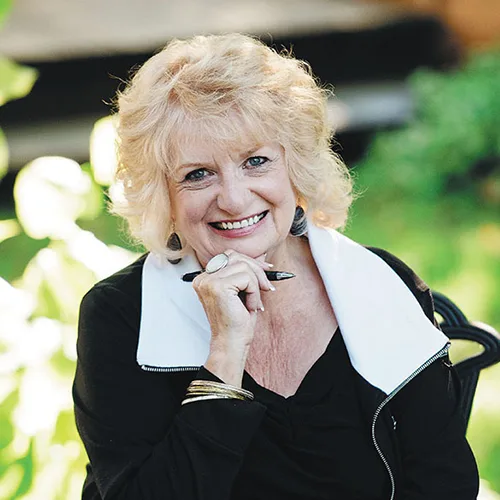

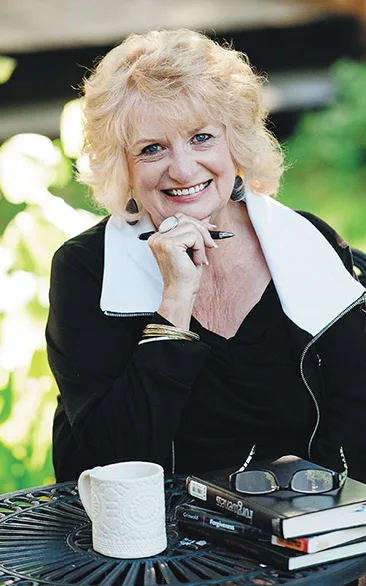
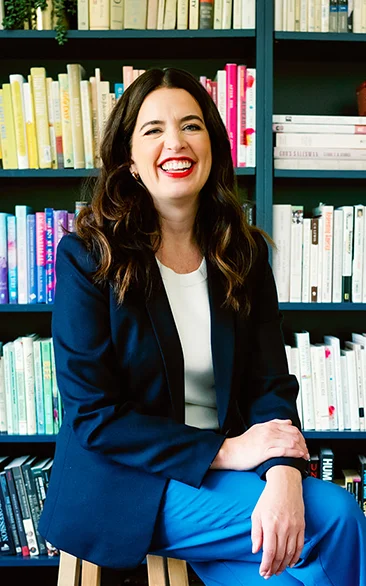









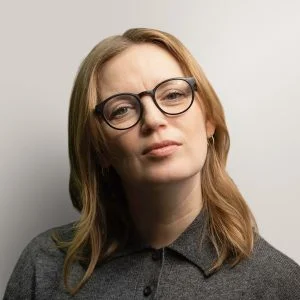



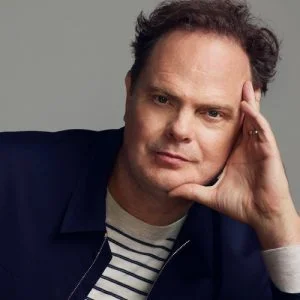
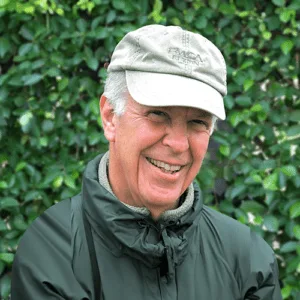

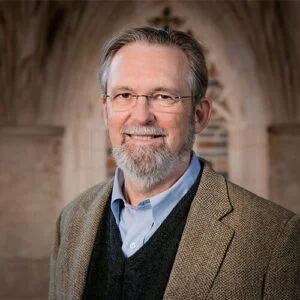


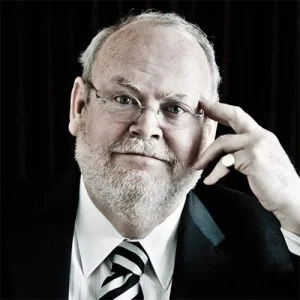

Leave a Reply